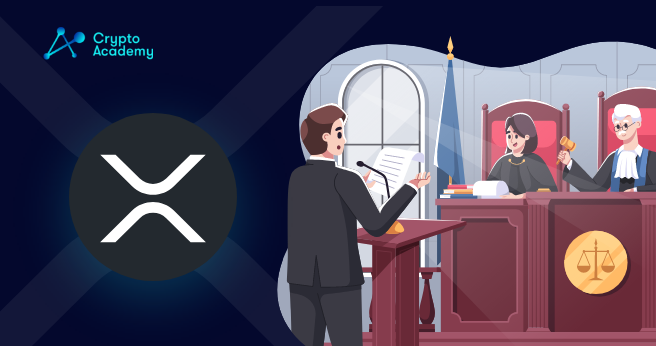While SEC is adamant on calling Ripple out on the unreasonably demanding RFAs, Ripple insists that what is deliberated on those 5,000 pages of their application for SEC admission can actually shorten the time of trial because they are as reasonable as they are crucial to the following trial proceedings.
The Securities and Exchange Commission (SEC) is calling Ripple out on their questions to legal statements by deeming them completely unnecessary among other unflattering adjectives. The contentious XRP lawsuit has prompted Ripple to submit a 5,000-page request where they are demanding answers to almost 30,000 questions from the SEC.
In response to this bold move, Mark Sylvester, the SEC counsel in a letter sent to United States Magistrate Judge Sarah Netburn during this week, has deemed the RFAs of Ripple which amount to a staggering 29,947 inquiries as “unduly burdensome.”
Mark Sylvester stated that just because this case and this lawsuit is high-profile, scrutinized and quite complex, it does not mean that opposing counsel can bury them with such a number of RFAs, and this action in itself is “abusive, unreasonable and oppressive.” In addition, he stated that the RFAs submitted by Ripple were in so many words, duplicated, accruing, contested, obsolete, or unacceptable, and thus, doubted to provide valuable concessions.
The SEC’s argument for dismissing Ripple’s RFAs is the prolonging of trial time. More specifically, in an attempt to answer only 776 RFAs for one part would take up more than 300 hours, 120 hours for the 309 in the other part, and taking on merely a portion of the total would take up hundreds of counsel time. However, Ripple has responded that the RFAs should not be dismissed because they do contain important points, and addressing these and specifying the trial matters could even shorten the trial time in the long run.
The SEC had initially voiced concerns to the court in September that the requests would exert a devastating strain on the agency, by citing the SEC’s burden under Morrison v. National Australia Bank Ltd as precedent to demonstrate that the presumed XRP sales or offers happened in the US, and whether the XRP sales involved investment contracts per the Howey test.
Ripple’s defense attorneys had definitely something to say about the SEC complaints against the RFAs. In a letter asking the Judge to dismiss SEC’s request for non-compliance with answering RFAs dated October 7, attorneys of Ripple argued that what the case needs and what the RFAs contain is completely proportionate. Moreover, while the SEC claimed that from 2013 to December 2020, all offers, sales, and XRP distribution were in fact the “offer, sale, and distribution of an investment contract”, and the express provisions of more than 1,700 individual contracts are at stake in this dispute.
In a direct response to the dismissive remarks of SEC regarding the RFAs, the legal team of Ripple stated that “this is a remarkable admission; apparently the SEC failed to review these contracts before alleging in its complaint that every single one of them was part of a course of unlawful conduct. Indeed, the SEC seeks disgorgement of ‘at least’ $1.38 billion in revenue generated by Ripple from those exact same contracts, yet says it can’t be bothered to actually read them.”
Related: Gensler Asked by US Congressman to Clarify SEC Jurisdiction Over Crypto
SEC sued Ripple back in December of 2020, where the charges against Ripple were that the XRP token sale was an offering of unregistered securities amounting to more than $1.38 billion, and simultaneously, under allegations of aiding and abetting this act, Brad Garlinghouse, Ripple CEO and Chris Larsen, executive chairman were named as co-defendants.
Ripple’s defense attorneys took another hit at the SEC by claiming that “Despite multiple invitations to do so, the SEC has not yet identified a single contractual provision that supports its claim that these are “investment contracts” under the Howey test, yet it has reserved the right to rely on such contracts in support of its claims.”
Apart from the aforementioned, the Securities and Exchange Commission has asked that the court mandate Ripple for the provision of recordings of both audio and video of all internal meetings among employees which, per their statement, contain incontestable evidence that is relevant to the lawsuit.
In response to this, Ripple wrote that the demand of the SEC is disproportionate because the SEC has done a thorough search and comb through the recordings and that should be enough. However, the SEC has not been satisfied with the results and has deemed the prior process as insufficient.
The SEC filed a letter motion with another request where it wants the court to turn down Ripple’s request to have transcripts of internal meeting recordings sealed. In an Oct. 14 letter to the judge, SEC attorney Pascale Guerrier stated that the records have the potential to impact the Court’s decision on the discovery issue before it and that the full disclosure to the public cannot be overridden by privacy interests or opposing business.
Even in the midst of this vicious legal battle, the XRP price incurred a rise up to $1.22 for the first time since its significant high in the prior month.
Also read: Bitcoin Close to $60K Amid Possible ETF Approval

